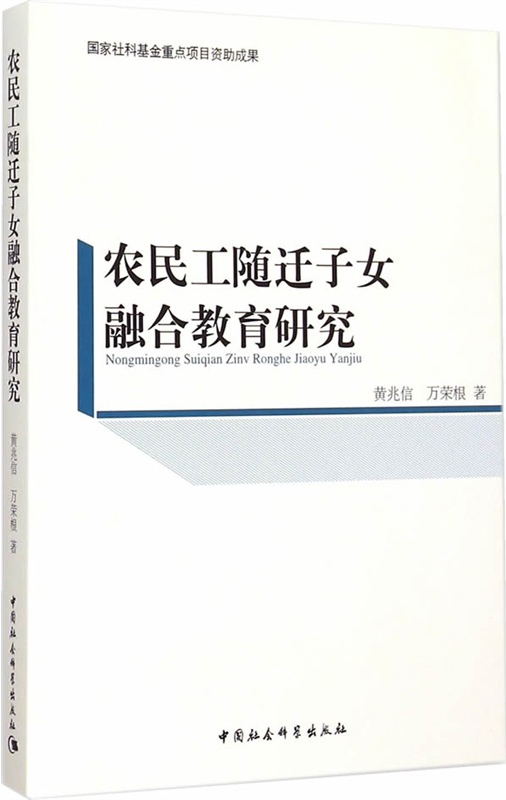Education of migrant children: Moving from separation to integration

Study on Educational Integration of Migrant Workers’ Children
Author: Huang Zhaoxin and Wang Ronggen
Publisher: China Social Sciences Press
As polices on the education of migrant workers' children have evolved from "restricted by hukou" to "differentiated treatment" and then to "people-oriented," concerns over whether they can enroll in schools have turned into a matter of getting these children better education.
Study on Educational Integration of Migrant Workers' Children by Huang Zhaoxin and Wang Ronggen puts forward a tentative plan for educational integration. The authors argue that migrant children, to various degrees, suffer from tangible or intangible separation in school education in the cities. In this vein, they propose interactive rural-urban educational integration that respects individual urban and rural students and stresses differentiated cultural backgrounds to achieve mutual acceptance, equal dialogue and common growth.
The book discusses the principles and model of integrated education in detail, in contrast to the simplistic recognition of the concept in the past.
Also, it points out that integrated education does not mean that migrant children should be incorporated into the city's mainstream culture and become new urban residents, which exposes a city-centered tendency.
Through questionnaires and interviews, the authors found that interpersonal relationships have a positive influence on psychological integration because most migrant students have a good relationship with their teachers and urban peers. Discrimination is rare.
A majority of migrant students show interest in learning urban dialects, with only a few reluctant to adopt an urban lifestyle and language.
In addition, economic disparities cause a complex mentality, affecting migrant children's social awareness and initiative. The book suggests the current binary household registration management system hinders migrant children's psychological integration because they feel rejected and lack a sense of belonging and identity.
It argues that parents or family reasons are not direct causes that impede migrant children's identity integration, while their academic performance, knowledge and horizons may directly breed low self-esteem, stopping them from active identity integration.
The book concludes that integrated education courses should be school-based and should include as many disciplines as possible, such as Chinese, mathematics and practical activities, and that extending every facet of the daily activities at school would serve as a viable method of integrated education.
Zhong Qiquan is from the East China Normal University.

 PRINT
PRINT CLOSE
CLOSE